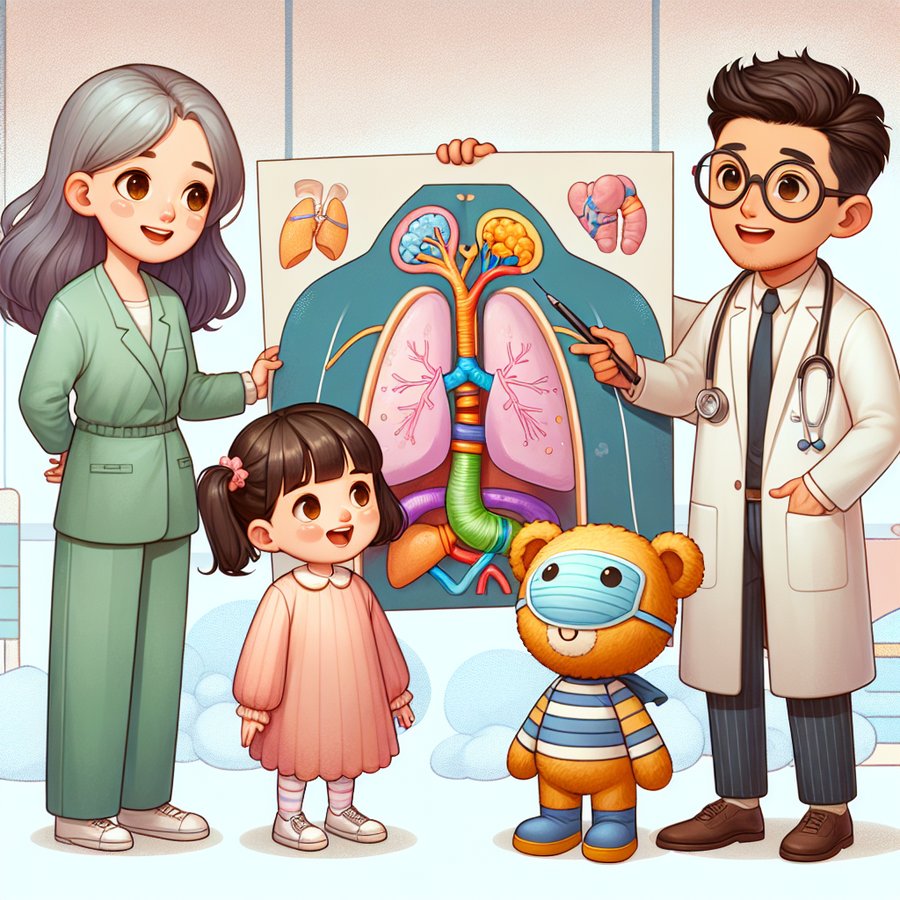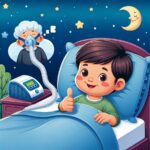Obstructive Sleep Apnea (OSA) in babies is a condition that can cause significant concern for new parents. This sleep disorder is characterized by pauses in breathing during sleep due to the obstruction of the upper airway. Understanding Obstructive Sleep Apnea, its causes, symptoms, and treatment options are crucial for ensuring the well-being and safety of your child.
What is Obstructive Sleep Apnea in Babies?
Obstructive Sleep Apnea occurs when a baby’s breathing is partially or completely blocked repeatedly during sleep. The condition is caused by the relaxing of the muscles at the back of the throat, which can lead to the narrowing or closing of the airway. As a result, the oxygen levels in the blood can drop, and the child may wake up frequently throughout the night.
While OSA can occur at any age, it is particularly concerning in babies due to their smaller airways and the potential for significant health issues if not addressed. It’s essential for parents to recognize the signs of OSA and seek medical advice to manage the condition effectively.
Causes and Risk Factors of Obstructive Sleep Apnea in Babies
Several factors can contribute to the development of Obstructive Sleep Apnea in infants. These include congenital abnormalities such as a small lower jaw or a large tongue, obesity, family history of OSA, and conditions like Down syndrome that affect the structure of the facial bones and muscles. Premature babies are also at a higher risk due to underdeveloped airways.
Environmental factors and lifestyle choices during pregnancy, such as smoking or exposure to toxins, can also increase the risk of a baby developing OSA. It’s crucial for expectant mothers to follow a healthy lifestyle and prenatal care regimen to minimize these risks.
Symptoms of Obstructive Sleep Apnea in Babies
The symptoms of Obstructive Sleep Apnea in babies can be challenging to identify. Common signs include loud snoring, long pauses in breathing while asleep, frequent awakenings, choking or gasping for air, and restlessness during sleep. During the day, babies with OSA may exhibit signs of sleepiness, irritability, and difficulty feeding.
It’s important for parents to monitor their baby’s sleep patterns and consult with a healthcare provider if they notice any of these symptoms. Early detection and treatment can help prevent more serious complications associated with OSA.
Diagnosing Obstructive Sleep Apnea in Babies
Diagnosing Obstructive Sleep Apnea in infants typically involves a thorough medical history review and a physical examination. In some cases, a polysomnography, or sleep study, may be recommended. This test records the baby’s brain waves, oxygen levels, heart rate, and breathing patterns during sleep, providing a detailed picture of the sleep disturbances caused by OSA.
Early diagnosis is vital for the effective treatment of OSA. Parents should not hesitate to seek medical advice if they suspect their child may have this condition.
Treatment Options for Obstructive Sleep Apnea in Babies
Treatment for Obstructive Sleep Apnea in babies depends on the severity of the condition and the underlying causes. In mild cases, simple measures such as adjusting the sleeping position or using a humidifier can improve breathing during sleep. For more severe cases, medical interventions may be necessary.
Continuous Positive Airway Pressure (CPAP) therapy is a common treatment for OSA. This involves using a machine to deliver air through a mask, keeping the airway open during sleep. In cases where OSA is caused by anatomical issues, surgery may be required to remove the obstruction.
It’s essential to work closely with a pediatric specialist to determine the best course of treatment for your baby. With the right approach, most children with Obstructive Sleep Apnea can lead healthy, normal lives.
For more information on sleep-related disorders in babies, visit our comprehensive guide on Obstructive Sleep Apnea.
Understanding and addressing Obstructive Sleep Apnea in babies is crucial for their health and development. By recognizing the signs early and seeking professional advice, parents can ensure their baby gets the necessary treatment to enjoy a restful, healthy sleep.













